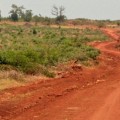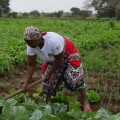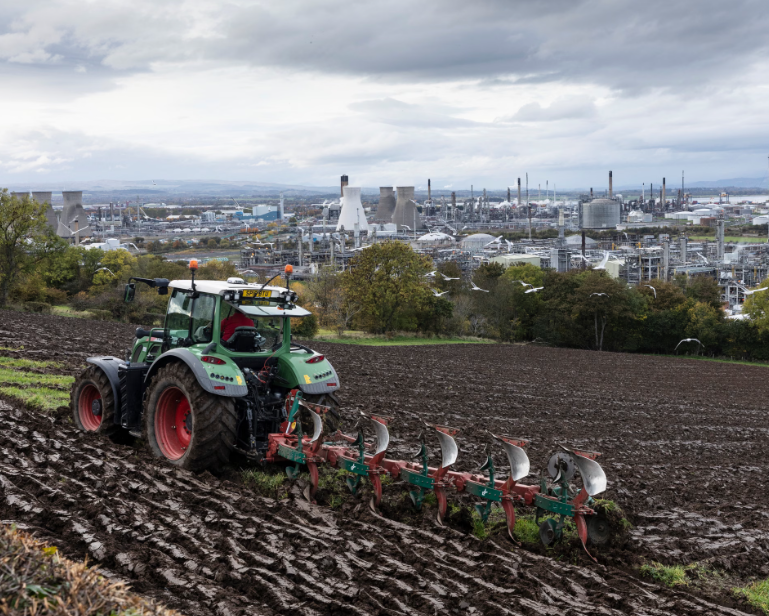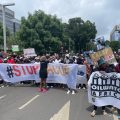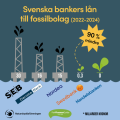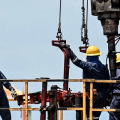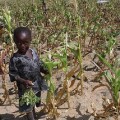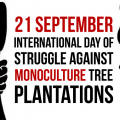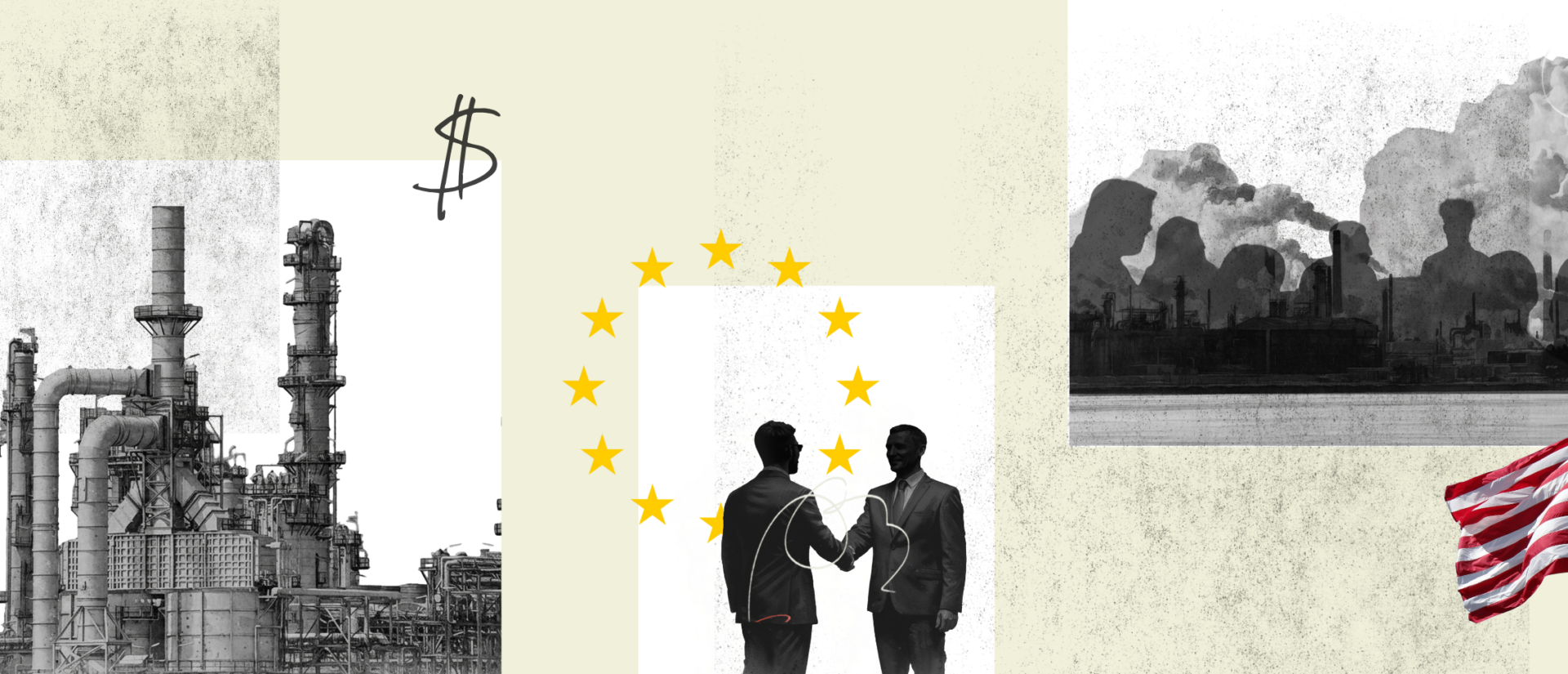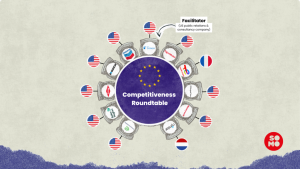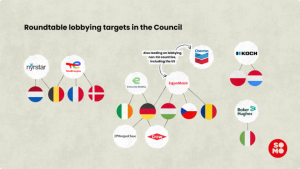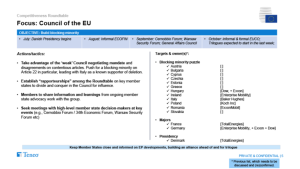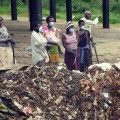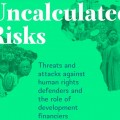Shortly before COP26, Amazon Watch and more than 170 organisations signed on to a statement under the headline “Offsets don’t stop climate change”.
The headline is borrowed from a December 2020 letter to the Financial Times in response to an editorial about Mark Carney’s Taskforce on Scaling Voluntary Carbon Markets.

The letter, from Doreen Stabinsky (College of the Atlantic, USA), Wim Carton (Lund University, Sweden), Kate Dooley (University of Melbourne, Australia), Jens Friis Lund (University of Copenhagen, Denmark), and Kathy McAfee (San Francisco State University, USA), states that, “Offsets don’t stop climate change because they don’t stop emissions.”
They write that,
In an ideal world, some types of offsets might theoretically balance out emissions with removals. But the whole point of an offset is that one entity gets to keep emitting.
And they explain that the problem is that with continued emissions, CO2 continues “to accumulate in the atmosphere where it resides for hundreds to thousands of years, and the temperature of the planet continues to increase”.
They point out that the oil industry is a primary beneficiary of offsetting and Carney’s taskforce was stacked with respresentatives of Big Polluters:
All the major oil companies are planning to continue with exploration and new extraction projects. None of them have plans for a managed decline of production that is anywhere near in line with the Paris goal aiming to limit warming to 1.5C. Indeed some fossil fuel majors have even stated their intent to increase exploration and production for at least the next five years. These are hardly decarbonisation goals. All of them intend to rely heavily on carbon offsetting to keep drilling and emitting-as-usual.
They conclude that if Carney were serious about addressing the climate crisis, he would “convene a taskforce on the managed decline of fossil fuels and bring the fossil fuel industry to the table”.
It’s not controversial to point out that offsetting does not reduce emissions (and therefore does not help address the climate crisis). Even proponents of offsetting will, if pushed, admit this fact:

In a press release about the statement signed by more than 170 organisations, Jim Walsh of Food & Water Watch says,
“Offsets are nothing short of a scam that corporate interests push, allowing them to continue polluting our climate and frontline communities with impunity. The harm does not end there, as these offset schemes displace indigenous communities and prop-up corporate agriculture and factory farming. Addressing the climate crisis means keeping fossil fuels in the ground, rather than pursuing these scams that harm our communities and climate for nothing other than corporate profits.”
Here is the statement, “Offsets don’t stop climate climate change”. The list of signatories is available here:
Offsets don’t stop climate changeClimate-driven wildfires, flooding, droughts and other extreme weather events daily impact every corner of the globe.Yet the fossil fuel industry, big utilities, big agriculture, big finance — and their political allies — are pushing carbon offset schemes to allow them to continue releasing the greenhouse gases driving the climate crisis, harming Indigenous, Black, and other already-marginalized communities, and undermining sustainable farming and forestry practices.The science is clear: we need to rapidly phase out fossil fuels and emissions-intensive agricultural practices like factory farming, while protecting forests, wetlands, and other natural carbon sinks. Every delay means greater impacts on our climate and more pollution in historically overburdened communities.[1]We call on leaders around the world to join us in rejecting offset schemes because these pay-to-pollute practices are nothing more than false and harmful solutions to the climate crisis.
- Nature-based offsets cannot “offset” fossil fuel combustion. While fossil fuel companies and other polluters would like fossil carbon and biological carbon to be fully interchangeable, this has no scientific basis.[2] Fossil carbon emissions are effectively permanent, coming from reservoirs deep in the earth where they have been stored for millions of years. When burned, the carbon pollution remains in the atmosphere for hundreds to thousands of years. In contrast, crops, soils, oceans, and forests are “fast-exchange” carbon reservoirs that have limited carbon storage capacity and can re-release carbon back into the atmosphere over the course of a few decades, or sometimes even over a few days.[3] Offsets confuse this basic science by wrongly treating the Earth’s biosphere as an endless source of potential storage for fossil carbon emissions.
- Offsets of any kind perpetuate environmental injustice. Greenhouse gas emitting industries are disproportionately sited in poor communities and communities of color, causing them to bear the brunt of pollution. Offset schemes increase pollution in these communities, worsening environmental injustice.[4] Furthermore, by allowing pollution to continue in exchange for land grabs elsewhere, offsets often shift the burden of reducing emissions from the Global North to the Global South.[5]
- The use of offsets is likely to increase greenhouse gas emissions. Polluters frequently purchase offsets for emissions-reducing practices by one entity, so that their own emissions can continue. In this case, emissions are still added to the atmosphere, so global warming continues. Polluters also purchase offsets for practices that could pull carbon out of the atmosphere, such as by planting forests or protecting existing forests. However, carbon storage in natural ecosystems is inherently temporary and highly reversible, as has been seen so clearly in the tragic forest fires in the U.S. west in the past few years.[6] All that carbon can be released very quickly back into the atmosphere, again increasing emissions.
- Offsets can result in violations of the rights of Indigenous and tribal peoples. Satisfying market demands for offsets will require access to huge expanses of land and forest, lands already occupied by Indigenous Peoples, peasants, and local communities. As such, Indigenous lands are increasingly targeted by forest offset project developers, creating pressure and division in Indigenous communities.[7]
- Offsets undermine sustainable farming and increase consolidation in agriculture. Carbon offset programs give additional leverage to already powerful corporations, including agribusinesses and factory farms, that have long squeezed farm income and drained rural economies, while increasing environmental pollution.[8] Corporations and large landowners are best-positioned to develop offset projects, which further entrenches the factory farm and corn/soybean monocultural model at the expense of small farmers, including Black and Indigenous farmers and Tribal Nations. Instead of allowing the industrial, extractive model of agriculture to further prosper by selling offsets to industrial polluters, policy makers should support traditional and ecologically regenerative agricultural practices.
- Offsets markets create more conditions for fraud and gambling than for climate action. Existing offset schemes have already proven to be easily open to fraud.[9] Yet the speculative trading of offsets derivatives and other financial products has already begun, prioritizing profit-seeking traders and speculators over economic and climate justice.[10]
We call on global policy makers to reject offset schemes and embrace real climate solutions that will keep fossil fuels in the ground, support sustainable food systems, and end deforestation, while eliminating pollution in frontline communities.
[1] IPCC, Global Warming of 1.5°C. International Energy Agency, Net Zero by 2050. IPCC, AR6 Climate Change 2021.
[2] Carton et al. “Undoing Equivalence: Rethinking Carbon Accounting for Just Carbon Removal,” Frontiers in Climate, 16 April 2021.
[3] Anderegg, W. et al., Climate-driven risks to the climate mitigation potential of forests, Science 368 (6947) 2020. Mackey, B. et al. 2013., “Untangling the confusion around land carbon science and climate change mitigation policy,” Nature Climate Change, 3(6),pp.552-557, 2013.
[4] Food & Water Watch, “Cap and trade: More pollution for the poor and people of color,” November 2019 at 1 to 2.
[5] Gilbertson, Tamara, Carbon Pricing: A Critical Perspective for Community Resistance, Indigenous Environment Network and Climate Justice Alliance, 2017.[6] Anderegg, W., “Gambling with the climate: how risky of a bet are natural climate solutions?,” AGU Advances, 2021. Coffield, S.R. et al., “Climate-driven limits to future carbon storage in California’s wildland ecosystems,” AGU Advances, 2021.
[7] Ahmend, N., “World Bank and UN carbon offset scheme ‘complicit in genocidal land grabs – NGOs,” The Guardian, 3 July 2014. Forest Peoples Programme, The Reality of REDD in Peru: Between Theory and Practice, November 2011.
[8] Institute for Agriculture and Trade Policy, “Why carbon markets won’t work for agriculture,” January 2020 at 2.
[9] Elgin, B., “A Top U.S. Seller of Carbon Offsets Starts Investigating Its Own Projects,” Bloomberg. 5 April 2021.
[10] Hache, F., Shades of Green: The Rise of Natural Capital Markets and Sustainable Finance, Green Finance Observatory, March 2019.
Original Source: Redd-monitor.
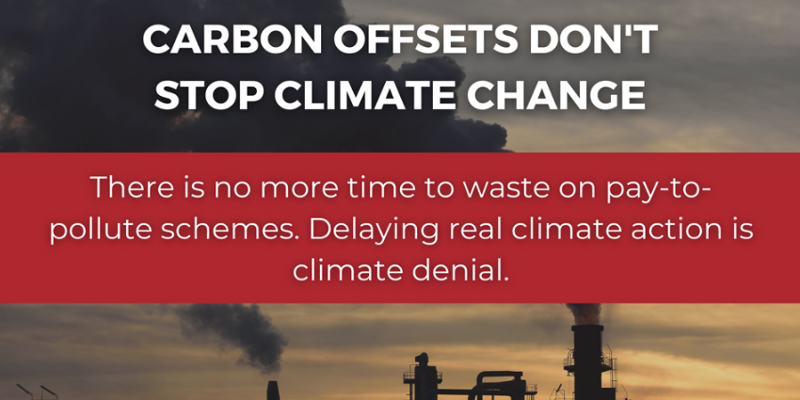

 MEDIA FOR CHANGE NETWORK2 weeks ago
MEDIA FOR CHANGE NETWORK2 weeks ago
 FARM NEWS2 weeks ago
FARM NEWS2 weeks ago
 MEDIA FOR CHANGE NETWORK1 week ago
MEDIA FOR CHANGE NETWORK1 week ago
 MEDIA FOR CHANGE NETWORK1 week ago
MEDIA FOR CHANGE NETWORK1 week ago
 MEDIA FOR CHANGE NETWORK4 days ago
MEDIA FOR CHANGE NETWORK4 days ago
 MEDIA FOR CHANGE NETWORK6 days ago
MEDIA FOR CHANGE NETWORK6 days ago
 MEDIA FOR CHANGE NETWORK3 days ago
MEDIA FOR CHANGE NETWORK3 days ago
 MEDIA FOR CHANGE NETWORK2 days ago
MEDIA FOR CHANGE NETWORK2 days ago


